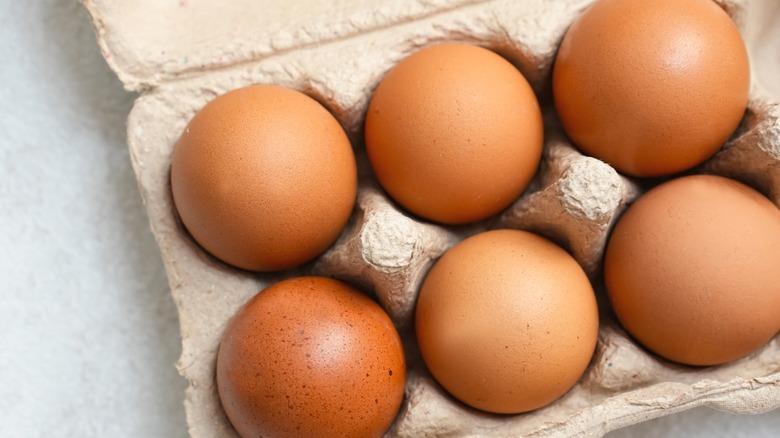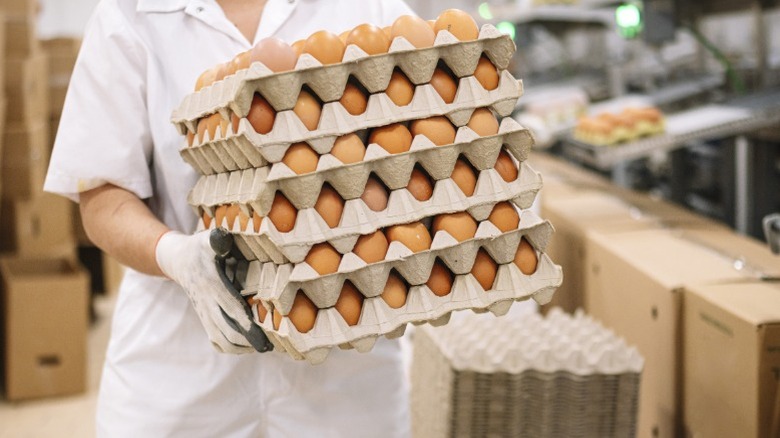Do Brown Eggs Really Make Better Hard-Boiled Eggs?
When you imagine an egg — just a normal egg — you're probably imagining an oval shape with a white shell. Heck, if you go to your local paint store, you'll likely find a shade of white called eggshell. But eggs actually come in a decently wide range of colors, including brown, light blue, light pink, and even a muted green. The exact color depends on the breed of the chicken (Orpingtons will lay light brown eggs, while leghorns will lay white eggs), but you'd be forgiven for wondering if the differences extend beyond appearance. Do brown eggs taste better, especially if they're hard-boiled eggs? We asked Sarah Beth Tanner, the "eggfluencer" for Pete & Gerry's, and the answer is not really.
"The true difference in egg flavor comes from the way that hen is raised and cared for, regardless of the color of egg she may lay," Tanner explains. Hens that are free range and raised on wide-open pastures with freedom to forage for bugs and greens will produce quality eggs. Tanner said these eggs are "much more flavorful with creamy, golden yolks."
In contrast, eggs produced by caged or cage-free facilities will taste different, as the hens are confined to small spaces or have no access to the outdoors, even if they're not in a cage. "When buying eggs, I recommend that instead of focusing simply on what shell color they have, look for keywords that indicate ethical production standards, like pasture-raised and free-range!" Tanner advised.
Brown eggs are more likely to be free-range
If it's true that there's no real difference between white eggs and brown eggs, why do some people swear brown eggs taste better? According to Sarah Beth Tanner, it has to do with egg quality. While not all premium eggs are brown, there is a higher proportion of premium brown eggs than otherwise. "Premium eggs (pasture-raised and free-range eggs) are of the highest quality, evidenced by thick, sturdy eggshells, deep golden yolks, and rich, creamy flavor," she says.
Why is it that eggs laid by free-range chickens taste so much better? Well, a part of it comes down to the lifestyle and diet chickens enjoy when left to their own devices. Hens who can roam freely lay eggs that are richer in Vitamin D compared to caged eggs. And while the housing type doesn't matter so much when it comes to taste, the nutrition hens get when they're allowed to roam around very much does matter. A diet consisting of greens, grains, and the occasional worm will give you a heartier, eggier-tasting egg, perfect for boiling and preparing the same way Julia Child once did.

